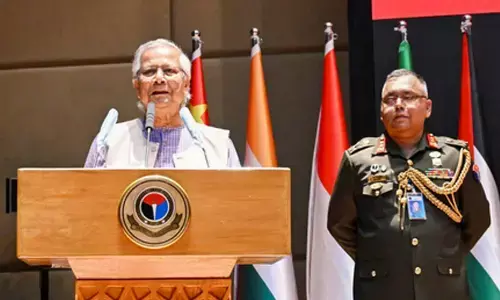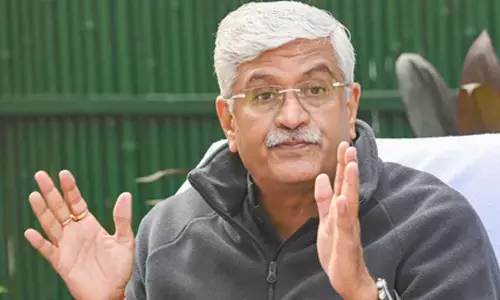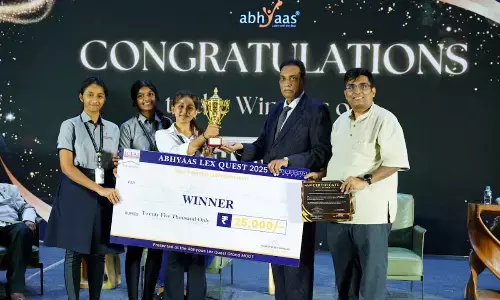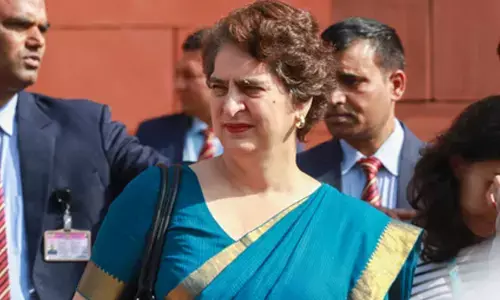Bilateral relationship between India and Japan
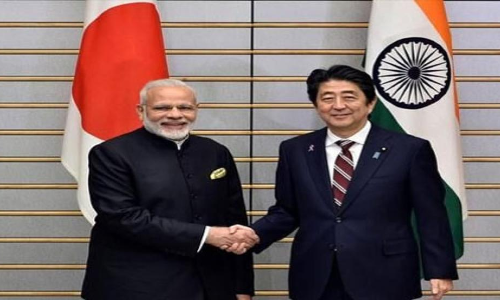
The Mumbai –Ahmadabad Bullet train deal presents opportunities to boost up the India-Japan bilateral relations. About the Mumbai-Ahmadabad Bullet Train Project:
The Mumbai –Ahmadabad Bullet train deal presents opportunities to boost up the India-Japan bilateral relations. About the Mumbai-Ahmadabad Bullet Train Project:
In December 2015, Indiasigned an agreement with Japan for introduction of a bullet train between Ahmadabad and Mumbai.
The work is scheduled to be completed by 2023.
Around 80% of the total cost of the project has been funded by a loan of Rs. 1 lakh crore from the Japan’s International Cooperation Agency (JICA), to be repaid over 50 years at 0.1 % interest
In India, a national High Speed Rail Corporation (HSRC) has been set up for the smooth development and implementation of the project.
Task force has been set up to facilitate private sector participation in the project. It includes representatives from Japan External Trade Organization, the Japanese ministry of economy, trade and industry, India’s Railway Ministry and the Department of Industrial Policy and Promotion.
What importance does this project hold for Japan?
The project is expected to help revitalise Japan’s stagnant economy.
Japan has struggled to export its bullet train technology.
Before India, Taiwan has been the only country to have exported bullet train technology from Japan.
One of the major reasons for is high competition from China. Chinese technology is cheaper, which makes it an attractive choice for the cost-conscious developing and middle-income countries of Asia.
The competition between China and Japan to export bullet trains is the reflection of broader rivalry between China and Japan for influence in Asia. Therefore, it’s not just about bullet trains but the deal has geostrategic significance too as both India and Japan has common concerns about China.
What importance does this project hold for India?
The project is expected to revolutionize Indian Railways.
It is also expected to become an engine of economic transformation in India
The project is likely to trigger several other manufacturing projects under the Make in India initiative.
It is also expected to increase India- Japan collaboration for infrastructure development in India
The project is expected to lead to development in areas adjacent to train stations.
The project is also expected to mitigate excessive economic concentration in large cities and help India grow in a balanced manner.
Advantages
1.Attractive low-cost long-term financing.
Government of Japan will provide a soft loan of about Rs 90,000 crore at an interest rate of 0.1 per cent over 50 years.
Such loan, from other multilateral or bilateral development financing institutions, would cost between 3-7 per cent with a repayment period of 20-30 years.
2.Stimulus for advanced components’ manufacture and construction
One of the stated objectives of the project is “Make in India”
As per the agreement the MAHSR Project has “localised manufacture” and “transfer of technology” as objectives.
3. Employment Generation
This project is likely to generate employment for about 20,000 workers,who will then be equipped to take up construction of more such projects in India.
The new areas where construction skills would be developed are ballast-less track, under sea tunneling et al.
4.Professional capacity-building.
A dedicated High Speed Rail Training Institute is being developed at Vadodara.
This institute will be fully equipped with equipment and facilities, such as a simulator, as exist in the training institute at Japan.
5.Speed
There are two types of services proposed. A “rapid train” service with only two stops — at Surat and Vadodara — and a slower service that halts at 10 stations en route.
The “rapid train” would complete the journey in 2 hours and 7 minutes, while the slower service would take 2 hours and 58 minutes.
6.Cutting edge operational technology.
- The Shinkansen technology is renowned for its reliability and safety.
- The train delay record of Shinkansen is less than a minute with zero fatalities.
- The technology regarding disaster predictions and preventions will also be acquired as part of the project.
What are the major concerns for the Project?
Prevalence of red tape and bureaucratic delays
Complicated land and labour laws which is an impediment to business owners
Railway safety
Land Acquisition
- Previous abrupt ending of business agreement between Japanese and Indian companies.
- Beyond Mumbai- Ahmadabad Bullet Train Deal- What makes
India- Japan Bi-lateral ties strong?
India-Japan
1.Japan was the only nation extended public support to India during the Doklam confrontation with China
2. In the aftermath of India’s nuclear tests, Tokyo was at the forefront of the international condemnation and the imposition of collective economic measures against Delhi.
3. But now Japan has come closest to being India’s natural ally in Asia.
Economic Relations
Trade
- In the Financial Year 2015-16, India-Japan trade reached US$ 14.51 billion, showing a decrease of 6.47% from 2014-15
- India’s export to Japan for 2015-16 was US$ 4.66 billion
- India’s Import from Japan for 2015-16 was US$ 9.85 billion
- India’s primary exports to Japan have been petroleum products, chemicals, elements, compounds, non-metallic mineral ware, fish & fish preparations, metalliferous ores & scrap, clothing & accessories, iron & steel products, textile yarn, fabrics etc and
- India’s primary imports from Japan are machinery, transport equipment, iron and steel, electronic goods, organic chemicals, machine tools, etc
- India-Japan Comprehensive Trade agreement was signed in 2011
- The agreement covered goods and services, free movement of visitors and workers, investments, intellectual property rights, and custom procedures. It also sought to abolish tariffs on over 94% of goods India and Japan were trading in, over a period of 10 years.
Investment
- Japan is the fourth largest foreign investor in India
- The presence of Japanese companies in India has also been increasing steadily
- During Indian Prime Minister’s visit to Japan in 2015, leaders of both the countries had agreed to the goal of doubling Japan’s direct investment as well as number of Japanese companies working in India by 2019.
- India has set up a ‘Japan Plus’ office at the ministry of commerce and industry to serve one-stop window to resolve problems faced by Japanese companies in India.
- India had announced “visa on arrival” scheme for all Japanese travellers, including for business purposes, effective from March 1, 2016
Infrastructure
- Delhi Metro Project has been efficiently executed with Japanese assistance.
- In June 2017, Japan’s Kawasaki Heavy Industries had entered into an agreement with Bharat Heavy Electricals for technical collaboration on the manufacture of steel metro coaches.
- JICA has been working with state governments on urbanization and smart city projects
- JICA has taken up a ‘Comprehensive Traffic and Transportation Study’ for Andhra Pradesh Capital Region.
- It has also approved a loan of Rs. 4,200 crore for Amravati Metro Project
- India- Japan Civil Nuclear Deal
- The agreement came into effect from July 2017.
- The agreement has allowed US and French nuclear firms who have alliances with Japanese companies to supply nuclear reactors, fuel and technology to India.
Defence Cooperation
- Defence has emerged as an area of partnership between India and Japan
- In the 2017 India-Japan annual defence ministerial dialogue in Tokyo, India and Japan exchanged views and ideas with the aim to further strengthen defence and security cooperation under the framework of the ‘Japan-India Special Strategic and Global Partnership’
- Japan and India have agreed to collaborate closely in defence production, including on dual-use technologies
- They have also agreed to commence technical discussions for research collaboration in the areas of Unmanned Ground Vehicles and Robotics.
- The recent Malabar Naval Exercise among US, India and Japanese Maritime Self Defence Forces has also strengthened the military ties.
- Malabar joint exercise the most high-profile representation of this.
- A new chapter of co-operation in relations in all spheres, from terrorism, defence, the bullet train, infrastructure development to nuclear co-operation
- India-Japan Special Strategic and Global partnership summit, and the highlights of the Joint statement between India and Japan
Concerns about China
1 Even though the Doklam issue is resolved, it can happen again on the long unsettled border between the two countries, at a place and time of China’s choosing.
2. Japan, which has its own troubles with China over territory, was the only country that openly articulated its support for India during those two troubled months
3. Shinzo Abe recalled Japan’s own experience with China’s claims over the Senkaku (Diaoyu) islands as “very challenging”
4. BRICS summit in Xiamen, China, where two Pakistan-based terror groups with animus toward India, Lashkar and Jaish, were named in the resolution.
Doklam standoff
1. Japanese Prime Minister Shinzo Abe raised the issue of the recent Doklam standoffbetween Indian and Chinese troops.
2. He recalled his own experience with China over claims to the Senkaku/Diaoyu islands,between 2012 and 2014, which had rocked bilateral ties between Tokyo and Beijing.
3. Abe complimented Prime Minister Narendra Modi for standing his ground on the Doklam standoff. And, then the two leaders spoke of their commitment to peace and stability in the Indo-Pacific region.
The joint statement-Highlights
1. It calls for a “rules-based order” in the Indo-Pacific region where “sovereignty and international law are respected, and differences resolved through dialogue
2. And all countries, large or small, enjoy freedom of navigation and overflight, sustainable development, and a free, fair and open trade and investment system
3. It took a swipe at China’s OBOR initiative by calling for transparency in the development of connectivity and infrastructure development in the region
4. It reaffirmed the India-Japan project to connect Africa and Asia
5. The statement condemns North Korea, but for the first time, includes “the importance of holding accountable all parties” that helped that country develop its nuclear programme.
Pakistan-based terror groups
1. The reference to Pakistan-based terror groups is a new addition to the joint statement
2. It said that the two leaders looked forward to “strengthening cooperation against terrorist threats from groups including Al-Qaida, ISIS, Jaish-e-Mohammad, Lashkar-e-Tayyiba, and their affiliates”.
North Korea’s nuclear programme
1.The North Korean situation was reflected amply and elaborately in the statement, in view of Japan’s concerns.
2. India too made common cause on the issue, and pointed to links between the Pakistan and Chinese nuclear programmes and the North Korean programme.
3. They stressed the importance of holding accountable all parties that have supported North Korea’s nuclear and missile programmes
4. Pakistan’s top nuclear scientist A Q Khan shared high-technology and equipment with the North Korean regime which was also likely supported by Chinese technology and expertise
Deal or no deal? India, Japan wrangle over N-pact note I
1. Indian and Japanese officials continued to wrangle over the legality of a document signed as part of the recent nuclear deal
2. The document indicates a link between nuclear testing and the cancellation of the deal
3. Indian view: Government sources say the document is “not legally binding”
4. Japanese view: The document had been signed by the nuclear negotiators in the presence of PM’s Shinzo Abe and Narendra Modi, and hence “legally binding.”
5. The note in question contains contentious clauses that effectively allow Japan to invoke an “emergency” suspension of supplies if India were to test a nuclear weapon
6. It could also contest any compensation claims from India in court
Japan has option to scrap N-deal
1.Event: India on Friday signed a historic civilian nuclear deal with Japan during the annual bilateral summit held in Tokyo
2.The nuclear deal which will help India access Japan’s nuclear market, had been under negotiation for 6 years
3. India is the first non-member of the non-proliferation treaty (NPT) to have signed such a deal with Japan
4. The deal is significant as it will help guarantee Japan’s continued support to India’s civil nuclear programme
5. Both sides also signed nine agreements including one on cooperation between ISRO and JAXA in outer space
India-Japan nuclear deal: Will India accept a nullification clause? II
1.India maintains a voluntary moratorium on nuclear testing
2. But it has thus far refused to sign on to the Nuclear Non-Proliferation Treaty (NPT), the Comprehensive Test Ban Treaty (CTBT)
3. It has also not given any other undertaking outside of its commitments at the International Atomic Energy Agency (IAEA)
4. But, Japan, the only country to have suffered a nuclear attack has special sensitivities
5. India may need to make an exception for Japan, despite India’s insistence on nuclear sovereignty
6. Another factor is Japan’s critical position in nuclear supplies to India
7. Although India has a guaranteed supply of nuclear fuel, all planned reactors including those from France and the U.S. and other than existing Russian reactors depend largely on Japanese parts
Factors that are threatening to unravel the post-war order in Asia
1.Rapid rise of China: Purposeful military modernisation over the last few decades has given Beijing levers to contest US military dominance over Asia.
2. Growing uncertainty over America’s future role in Asia
Rising China
1. Rising China has dethroned Japan as the number one economic power in Asia.
2. China’s GDP is now five times larger than that of India.
3. Beijing outspends Delhi and Tokyo on defence by more than four times. According to the London-based International Institute of Strategic Studies, China’s defence budget ($216 billion) is more than twice that of India ($56 billion) and Japan ($46 billion) put together.
Clinching the N-deal with Japan
1. Theme: Upcoming civil nuclear agreement with Japan.
2. Significance of the upcoming agreement: Japan is the only country to have been the victim of a nuclear attack, and its decision to sign an agreement with India, a country that has not signed the Treaty on the Non-Proliferation of Nuclear Weapons (NPT), would be a first.
3. Significance for India: Given the strong domestic reservations in Japan against nuclear energy, Tokyo’s support to the deal so far is an indication of the importance it accords to relations with India.
4. It would convey a message of trust to the Nuclear Suppliers Group members and hopefully help in acceptance of India’s membership.
5. Japanese nuclear energy technology and safety parameters are widely considered to be cutting-edge, and many critical parts needed for Indian reactors are made by Japanese manufacturers. These will not be available to India until the agreement is done.
6. Even the U.S. civil nuclear deal, that is yet to be actualised, is contingent on the deal with Japan.
7. Post-Fukushima, Japanese manufacturers can be expected to be more generous with India on the liability issue, given their own experience with the enormous cost of cleaning up.
8. Sticking points in the past: India’s refusal to sign the NPT, as it considers the treaty unfair to the developing world.
9. The Japanese insistence on a “nullification” clause that the agreement would cease as soon as India tests.
N-deal with Japan ‘ready’ to be sealed
BY Gudipati Rajendera Kumar








